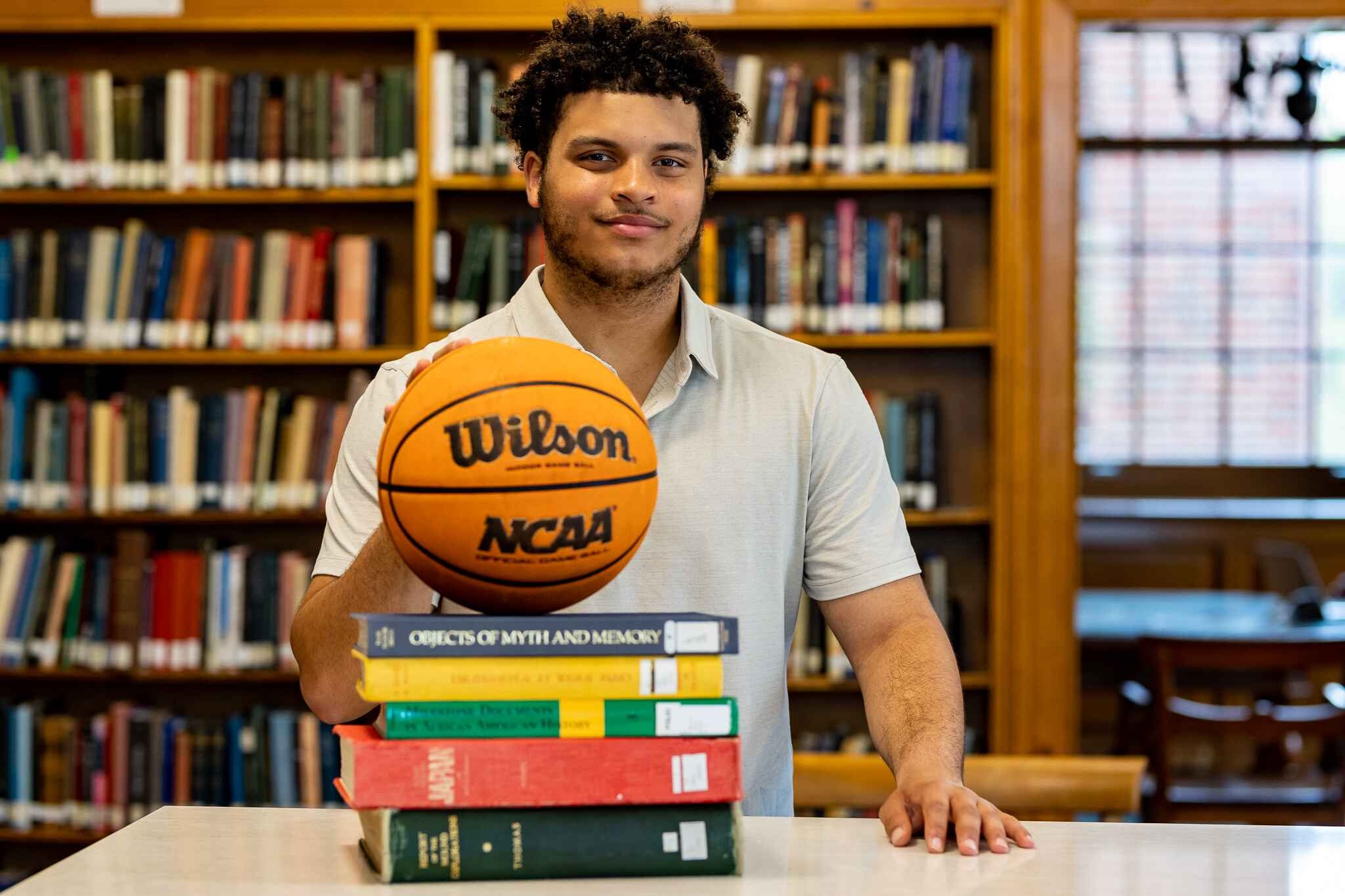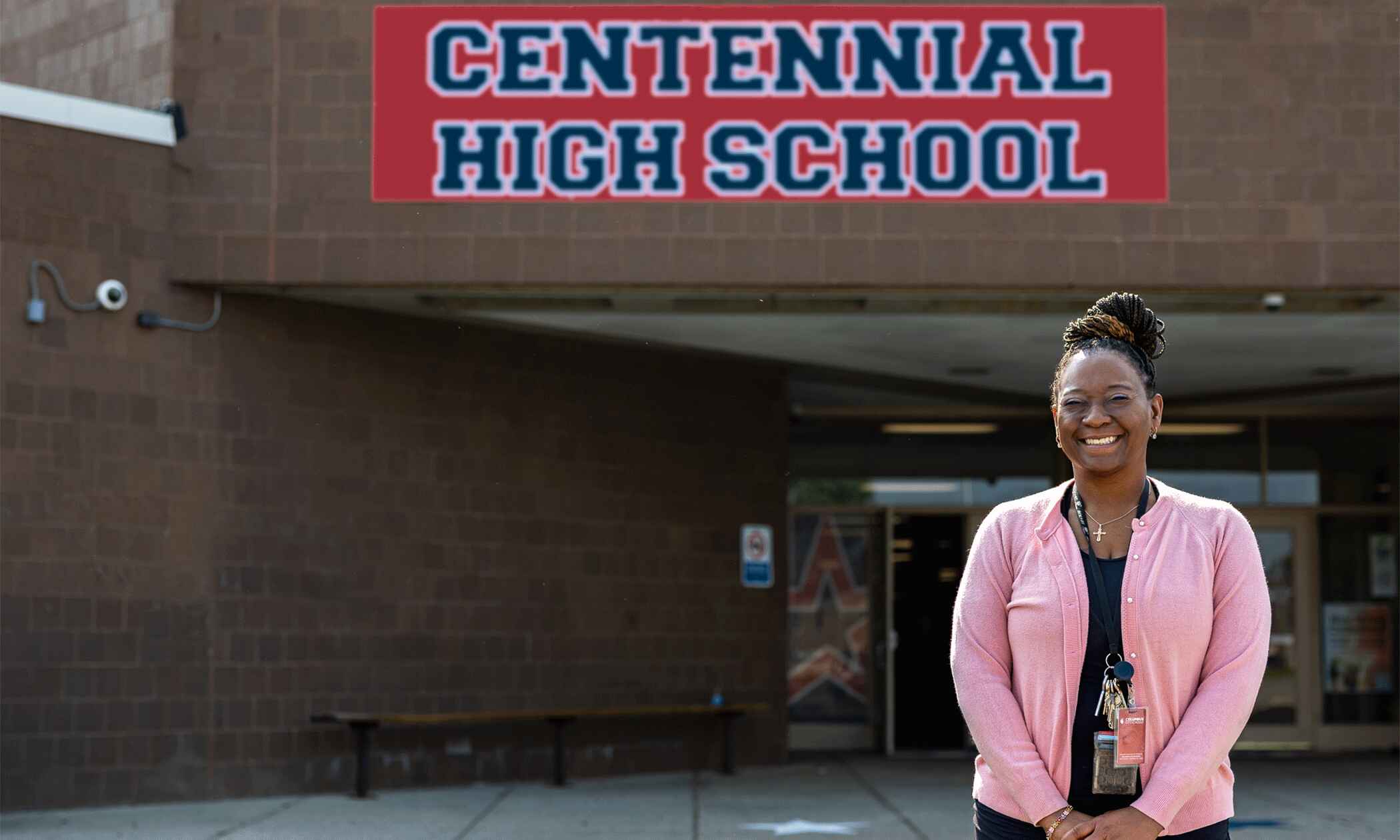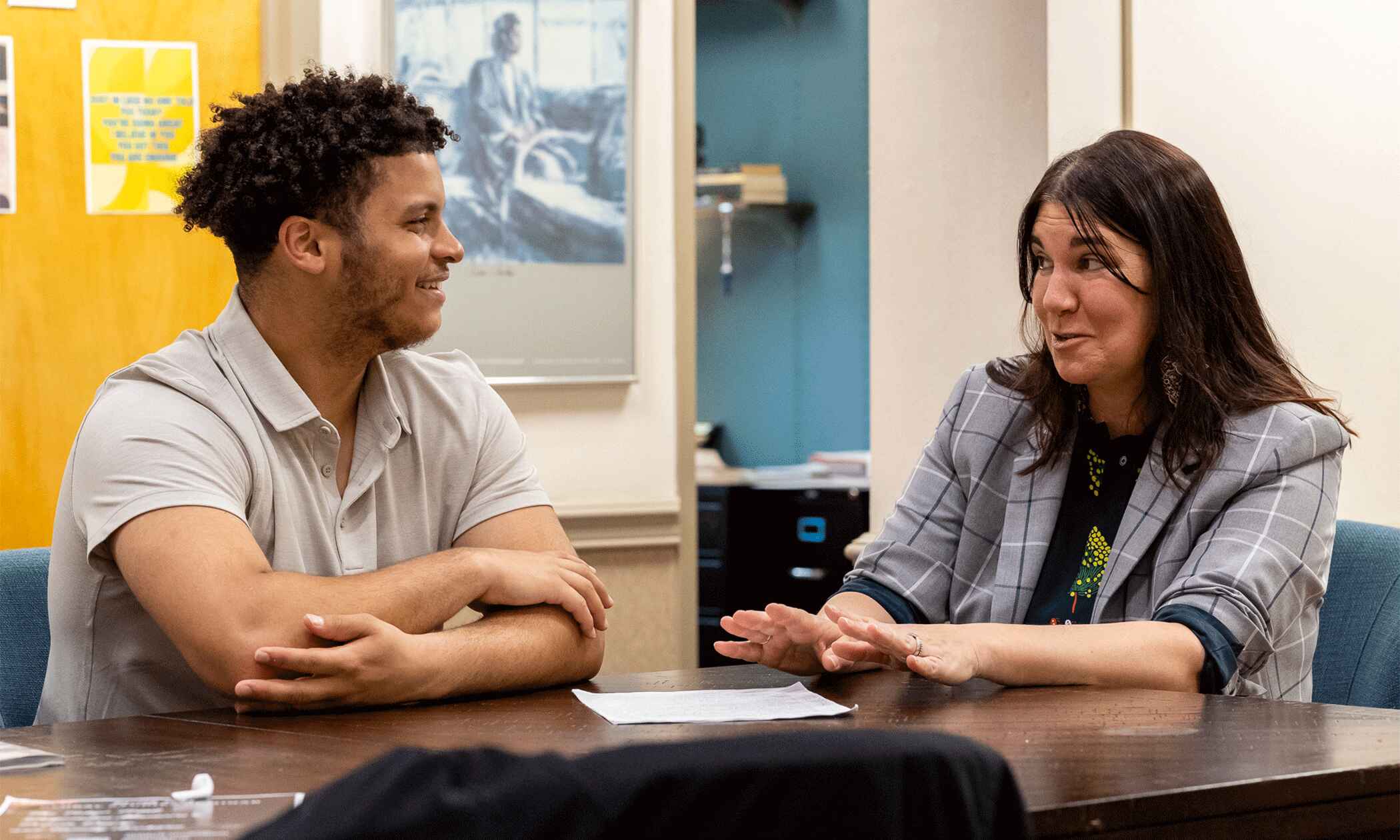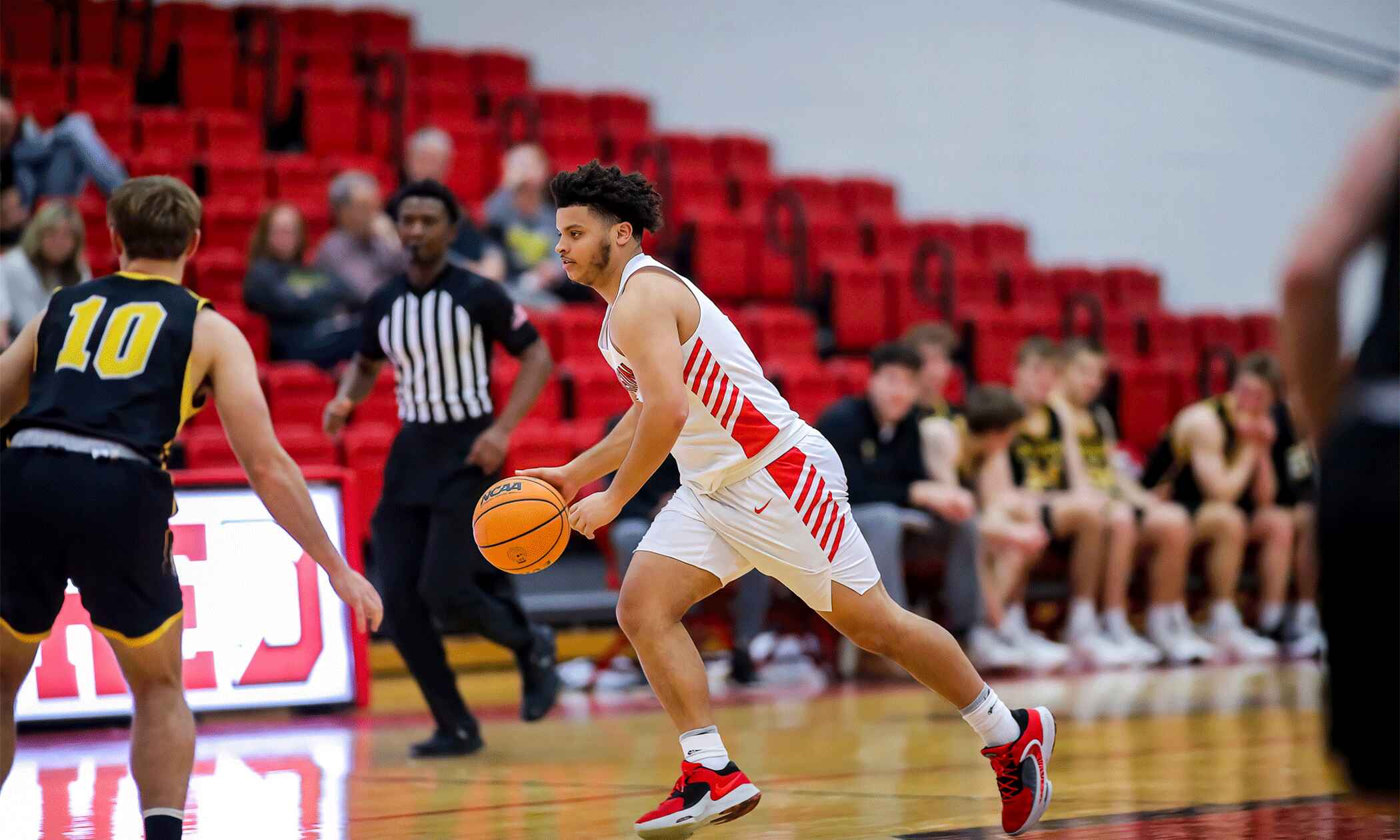The college basketball coaches had come calling, Denison among them. Jay Jackson ’25 didn’t know much about the college in Granville, but he knew someone who did: Kay Fields-Battle ’95, his assistant principal at Centennial High School in Columbus.
During her years as an educator, Fields-Battle had helped to shepherd several other Centennial students to Denison. She looked for a certain kind of student, one she knew would rise to the college’s challenges and thrive there.
Driven, bright, and well-rounded, Jackson was a perfect fit. As a Division III school, Denison couldn’t offer Jackson a basketball scholarship, but he was an ideal candidate for a full-tuition grant through the Denison-Columbus Alliance. The scholarship program, funded by Don ’54 and Teckie ’56 Shackelford, provides aid to select high-achieving students from Columbus City Schools.
“I definitely would not be here without them,” Jackson says. “With the scholarship, I’ve been able to accomplish a lot of things that I didn’t know were possible.”
Kay Fields-Battle ’95 was Jay Jackson’s assistant principal at Centennial High School in Columbus. Fields-Battle encouraged Jackson to jump at the chance to continue his education at Denison.
That was the message Fields-Battle says she drove home to him, and has driven home to other students from Centennial who have gone on to Denison: that the college on The Hill could open doors for them they didn’t know existed.
“She was telling me how it’s really prepared her for life after college,” Jackson says. “You’re going to be challenged because you’re going to grow not just academically but socially as a person, as a leader. Denison really sets you up for the next 40 to 50 years after graduation.”
‘You can do it, too’ In just two years at Denison, Jackson has built quite the resume. Basketball remains an essential part of his life, but as he puts it, “I know that orange ball will stop bouncing for me one day.”
So he has thrown himself into his two majors, history and Black studies. He has an eye on law school, and before starting his junior year he is interning at a Washington, D.C., law firm, a connection he made through the student manager for the men’s varsity basketball team.
Jackson was the 2023 winner of the Kenneth Joseph Hines Memorial Award, given each year to a student with a keen interest in diversity, service, and leadership. He is the co-president of DIG, the athletics-based diversity and inclusion group, and he has traveled to national Black student athlete summits in California and Texas. One of his goals is to encourage other students of color to consider coming to Denison.
“I can show them, ‘Here’s how I did it,’” he says.
‘You can do it, too’
Jay Jackson ’25 has built relationships with Denison professors at Denison, just as he did with some of his teachers and administrators at Centennial High School.
His parents long impressed upon him that “life isn’t just about me,” and as he became more involved on campus, he discovered a knack for advocacy.
“That’s something I’m very passionate about — being a voice for others,” he says. Pursuing the law, with a focus on representing those who struggle to be heard, seems like a natural career path, he says.
He has followed Fields-Battle’s advice to seek out mentorships with faculty, take risks, and leave Denison a stronger place when he graduates in 2025. In October 2023, he is headed to a student leadership conference in Northern Ireland.
“When you go on visits and you talk with admissions at a lot of schools, they mention all these great things about their school,” Jackson says. “But you know, coming to Denison, you realize they were able to back up their sell.”
He still visits his high school teachers and Fields-Battle, who likes to keep tabs on his progress.
Jay Jackson ‘25 has played basketball for as long as he can remember, and it led to him playing guard on Denison’s team.
“Denison to me is for students who want to raise their voice, who want to grow their voice, who want to be active in their community,” she says.
She says she shares a story with Centennial students considering Denison. There are times, she points out, that they inevitably have noticed the disparity between the resources at their school and others.
“Sometimes we have to go play another school way out in the suburbs, and we get there and the kids are on the bus and are like, ‘Whoa.’ It hits you in the face: you don’t have any of that; you’re not coming from that place.
“But you still have the right to access it,” she says. “And so often I’ll tell them, ‘You know, going to Denison was kind of like that. I may not have had all this or that when I went there, but I was allowed to see and participate and know that I could have access to those things, know that I could make it better for others, know that I could impact others, that I could do whatever I wanted to do.’”
That, she reminds Jackson when he stops by now, is the power of a Denison education.
“Denison was big enough to let me grow, but small enough so that I didn’t feel like a number,” Fields-Battle says. “I felt like I was getting not only my education but a look at life. It’s almost like Denison takes a big world and strips it down to a place you can live in and navigate.”










